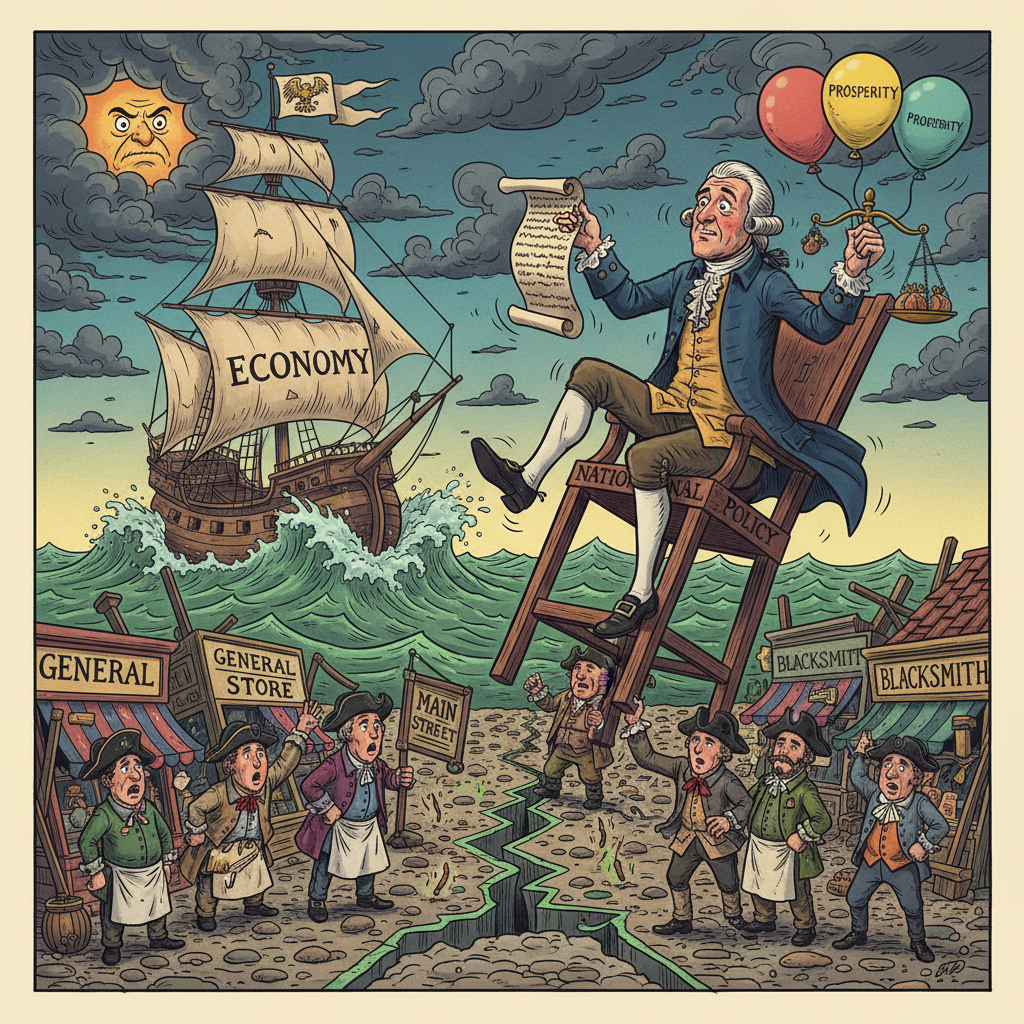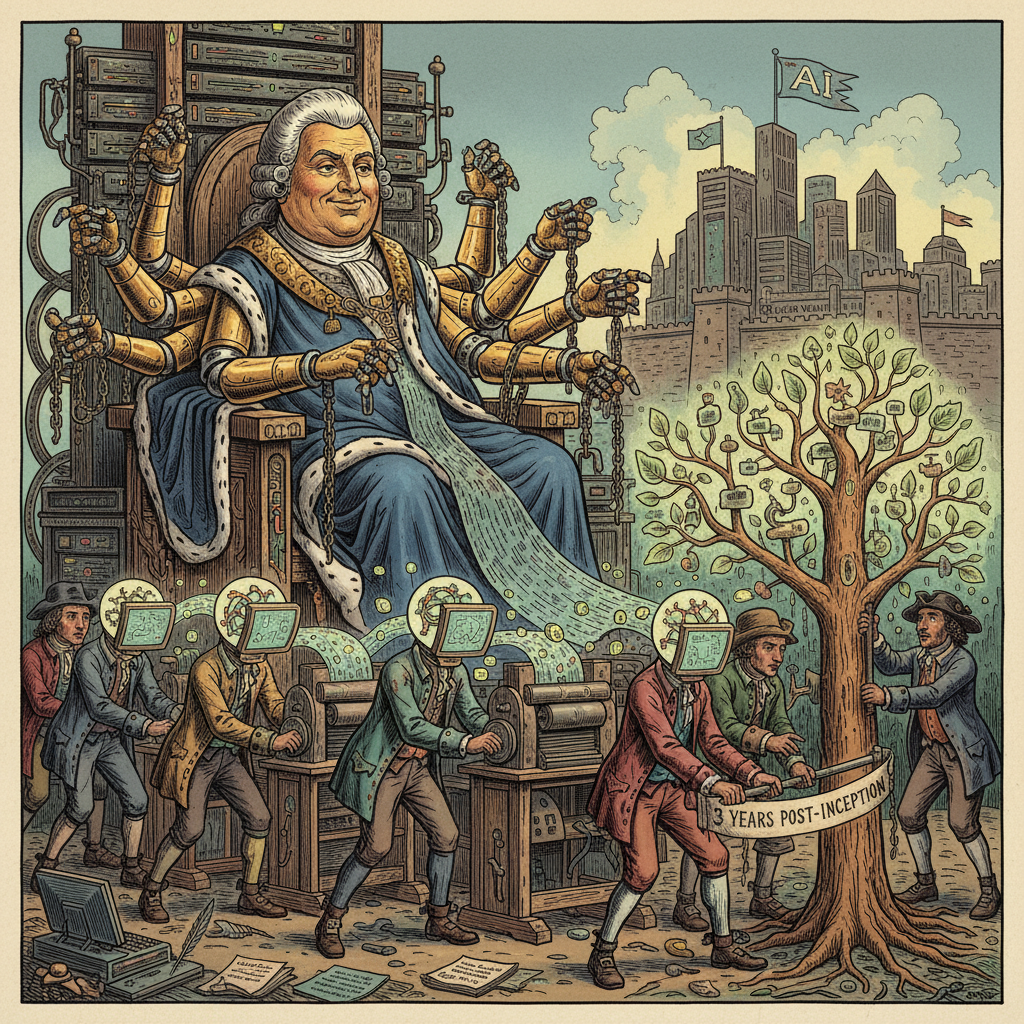The Unsteady Hand of State: Main Street's Mounting Unease Echoes Pre-Revolutionary Grievances
 By Miles Corbin
By Miles Corbin 
As small business owners nationwide register a marked decline in confidence, the economic tremors beneath the surface recall a foundational truth: prosperity withers when national policy lacks steadiness and foresight.
As small business owners nationwide register a marked decline in confidence, the economic tremors beneath the surface recall a foundational truth: prosperity withers when national policy lacks steadiness and foresight.
Why it matters: The Founders understood that economic instability from an "inconstant government" posed a fundamental threat. The administration's unpredictable tariffs and trade threats echo the "unsteady system of national policy" early American thinkers warned against. This uncertainty obstructs investment, fostering a "want of confidence in the public councils" that stifles enterprise. Such conditions risk more than quarterly losses; they question economic liberty itself. As John Dickinson observed, "If any person considers, these things, and yet not thinks our liberties are in danger, I wonder at that person's security." This pervasive insecurity suggests an erosion of conditions vital for a truly independent populace.
Read the Full Story







